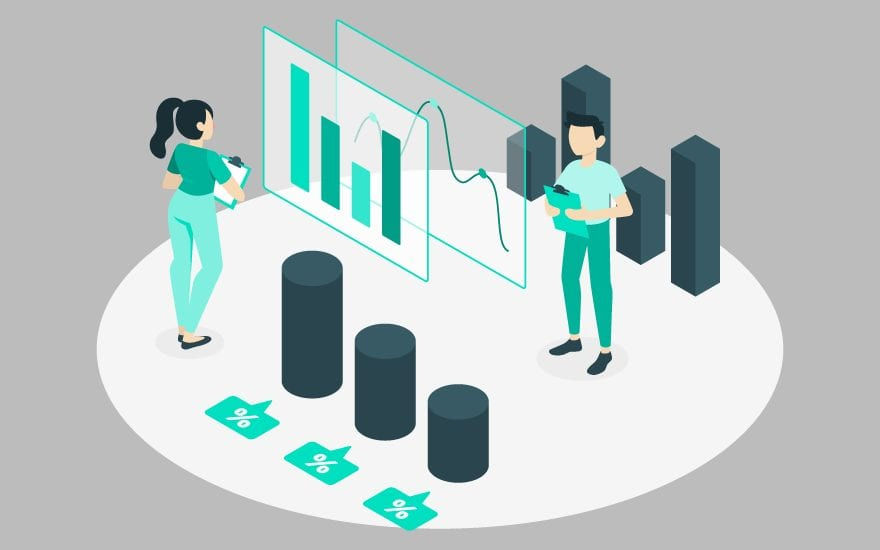Careers in Statistics and Data Science
- Literary Club
- Oct 16, 2022
- 4 min read

“There is a lot of scope in Statistics!” - This is a sentence we hear a lot these days, but do we really understand it? If not, don’t worry, you are at the right place!
Statistics v/s Data Science
Statistics is the science of collection, organization, analysis, interpretation and presentation of data, using statistical techniques and quantified models to represent a given set of data whereas Data Science can be described as the point where mathematics, statistics and computer science intersect. It combines these multi-disciplinary fields and computing to interpret data for decision making.
Although, both focus on analyzing data to provide answers and insights that can help improve decision-making.
With new technologies unraveling, the career scope in Statistics and Data Science is ever increasing. It has applications in every domain - finance, technology, medicine, e-commerce, ecology, entertainment, sports, politics, travel and tourism - you name it. Among these, the most popular ones have been mentioned below.
Statistician
Statisticians satisfy a wide range of duties which mainly include analyzing and interpreting numerical data to enable informed planning and decision-making. They gather data, apply statistical and analytical techniques to it and identify trends based on the results of their calculations and projections. They may work at public or private institutions, businesses, or as independent consultants. They’re responsible for diving into data that can inform more efficient business practices.
Data Analyst
A data analyst is a professional, who after performing extensive research into a particular area, develops a report and shares it with their organization. Their findings assist businesses in several ways, such as by establishing company needs, identifying areas that need improvement and determining when and where to implement new products or services. There are four different types of analytics that a data analyst may use to do their job, including:
Prescriptive analytics: Data analysts use this type of analytics to determine which action a business should take in a particular situation.
Diagnostic analytics: These professionals use diagnostic analytics to evaluate why a particular situation occurred by analyzing various data sets and identifying patterns.
Descriptive analytics: Analysts use this type of analytics to assess trends by analyzing past data, such as sales and revenue in a given time period.
Predictive analytics: Data analysts use predictive analytics to uncover the most likely outcomes based on patterns and tendencies and to help businesses proactively take action.

Data Scientist
Data scientists are big data wranglers who gather and analyze large amounts of unstructured and structured data by combining computer science, mathematics, and statistics. They are experts in technology and social sciences who solve business problems by using their industry knowledge, context understanding and skepticism about existing assumptions. They are responsible for making sense of unstructured and unorganized data from various sources including smart devices, social media feeds and emails that don’t fit neatly into a database.
Data scientists in business often work in teams to extract big data from customers to identify revenue opportunities and predict their behavior.

Business Analyst
The main role of a business analyst is management. The modern business environment is complex and the business analyst’s role is to maintain requirements through constant change by using innovation to do so. This means their role is to develop technical solutions to problems in a business or to further a company’s sales revenue by defining, documenting and analyzing requirements. Companies rely on business analysts to carry out their responsibilities for their role and to use their skills effectively to create lasting results.
Database Administrator
Information stored in a database can be used for a variety of reasons by different programs and platforms—and trying to make it all work harmoniously can be tricky. Database administrators, also called DBAs, are responsible for accurately and securely using, maintaining and developing computerized databases within a wide range of public and private sector organizations.
Biostatistician
Biostatisticians are data collectors and analysts who focus on biology for fields such as medicine, agriculture, and public health. Working at the intersection of health and data science, they are the wizards who produce and verify statistics like: “The risk of hospitalization from COVID-19 after vaccination is about 5 in 100,000.” Their analysis impacts the health and overall well-being of humans, animals, and ecology.
Besides clinical settings, they also work in government or nonprofit organizations, in academia, in technology, or in a corporation. Biostatisticians sometimes work for pharmaceutical companies during their clinical studies to determine whether a drug is effective. They might do the same for a medical device company. They may work for a public health-focused non-profit to evaluate programs that inform policy making. In government-related roles, they help shape public health and education policies.

Risk Analyst
A risk analyst evaluates financial documents, economic conditions and potential clients to help companies determine the level of risk involved in making a particular business decision. They typically work for banks and insurance companies, though any company handling large amounts of money may choose to hire a risk analyst.
Econometrician
Econometrics (also called quantitative economics) is the branch of economics that uses math and statistical methods to predict the business, employment, and societal outcomes of different economic theories. Econometricians are specialized economists who use statistical measures to analyze economic data. As an econometrician, you will use your analytical and mathematical skills to model and predict different economic principles and results.

Statistical Consultant
A statistical consultant provides statistical advice, analysis, and training. Clients can come from a wide variety of sectors including business, medicine, environment, and government, but they all have one thing in common; they want to collect and analyze data to make evidence-based decisions. Statistical consultants evaluate the data after an experiment is completed and condense the information into insights that can assist the firm in making an informed decision.
Rational, methodical, accurate - these are just some of the valuable qualities that characterize a statistics major. Students in this challenging degree learn a wide range of skills through research, including how to conduct research, analyze data, and present findings in a clear and compelling manner and tend to have a high level of numeracy and a knack for logical thinking and problem solving. They use their logical skills to select the best possible option when others simply make their best guess. We hope this resource helped you gain a more profound knowledge about the wide range of careers the field of statistics and data science offers.
Written by
- Saachi Gogate, MSc Statistics and Data Science
- Arantika Gupta, MSc Statistics and Data Science




Comments